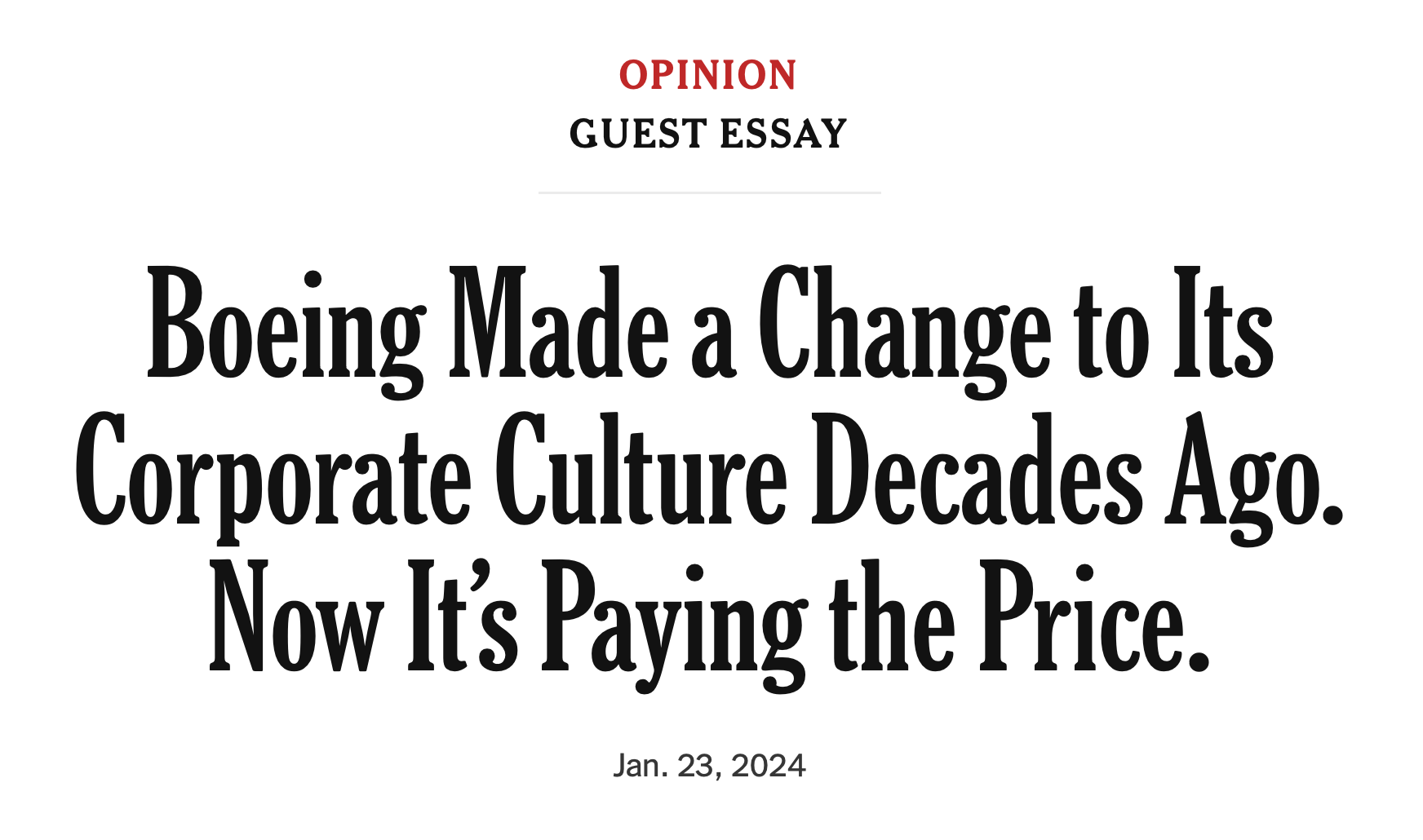Ever heard of a “quality escape”? Me neither.
Boeing apparently used these words recently to talk about the terrifying Alaska Airlines incident where a door plug they helped design blew out at 16,000 feet.
It’s a funny-sounding phrase. Something you might expect an engineer to say. But given the context, I’m not super shocked that the phrase was mocked as a tone-deaf corporate euphemism in a recent New York Times opinion piece.
Look, running an airline manufacturing company must be mind-blowingly complex. Same for running an airline. That’s no excuse for not prioritizing safety, but it’s easy to forget the complexity as we all ‘hop’ on our next flight and just expect it to surprise and delight us.
For anyone in charge of overseeing brand at big B2B companies like a Boeing or an Alaska Airlines–one that partners with other providers who do lots of M&A–the difficult lesson here is that your brand is not only connected to your culture, it’s connected to your partner’s culture, whether you like it or not.
Alaska Airlines’ brand, for example, is linked to Boeing’s culture (itself a product of a McDonnell Douglas acquisition) and to the culture of Spirit AeroSystems, which apparently builds the 737 Max fuselage for Boeing. That’s a lot of culture melding.
This painful reality for Alaska Airlines’ brand was on full display when it was mocked on Saturday Night Live. In this sketch, Alaska Airlines’ brand took the hit for the plane’s problem. Spirit’s did too, but not Boeing.
So, what can CEOs and CMOs at big B2B companies do to manage this big brand risk? For one, it starts with ensuring your company culture is actually delivering on the values that matter.
Next, it means ensuring your partners really, truly live by the same beliefs that you do.
In other words, today’s big B2B brands need to manage culture the way they manage sustainable supply chains. They need to worry about what their people believe and do AND what their suppliers’ people believe and do–just like they need to minimize the impact of their suppliers on the environment.
With average CMO tenures being something like 48 months, you might think that leaders today might never have to deal with the implications of their actions 5 or 10 years from now, but their successors will. And as long as they outsource their culture to someone else, they ignore the risk of a similar chain reaction on their brand now and years from now.
